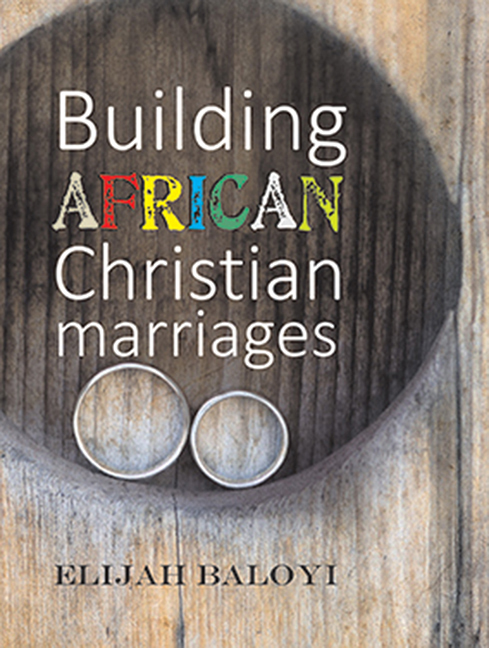Book contents
- Frontmatter
- Dedication
- Contents
- Foreword
- Preface
- Acknowledgements
- Chapter 1 Traditional obstacles in young African marriages
- Chapter 2 Excessive family intervention in African marriages
- Chapter 3 The influence of lobolo on the African marriage union
- Chapter 4 The negative influence of infertility on young African marriages
- Chapter 5 Some biblical teachings about marriage
- Chapter 6 Conclusion
- Appendix A comparison of the African and the biblical perspective on marriage
- References
- Index
Chapter 3 - The influence of lobolo on the African marriage union
Published online by Cambridge University Press: 14 February 2020
- Frontmatter
- Dedication
- Contents
- Foreword
- Preface
- Acknowledgements
- Chapter 1 Traditional obstacles in young African marriages
- Chapter 2 Excessive family intervention in African marriages
- Chapter 3 The influence of lobolo on the African marriage union
- Chapter 4 The negative influence of infertility on young African marriages
- Chapter 5 Some biblical teachings about marriage
- Chapter 6 Conclusion
- Appendix A comparison of the African and the biblical perspective on marriage
- References
- Index
Summary
Introduction
Mbiti (1969:140) defines lobolo as a custom of presenting a gift to the bride's people as it is practised all over Africa, though in varying degrees. He also mentions the different names that were used to refer to lobolo in former times, such as: ‘bride-wealth’, ‘bride gift’, ‘bride price’, ‘dowry’ and ‘lobolo’. These terms suggest that lobolo is a token of gratitude on the part of the bridegroom's people to those of the bride, for caring for her and allowing her to become his wife. On the part of the bride's relatives, the gift replaces her, reminding the family that she will leave or has left, but has not died (Mbiti, 1969:140).
Haselbarth (1976:81) defines lobolo as a sign of affection to the wife, strengthening her position and at the same time honouring the older generation. There are actually three important reasons for lobolo, namely that it gives value to the woman, proves the seriousness of the man and affirms the new fellowship between the two families involved (Haselbarth, 1976:82).
I fully agree with Warunta and Kimothi (1994:50), who do not regard lobolo as buying or selling. In my opinion, a price cannot be put on the bride, because there is no question of buying or selling the girl. A person's worth cannot be determined in terms of money. However, the temptation is great for the girl's parents to try obtain as much as possible from the man. Mbiti (1969:140) also strongly objects against selling and buying under the guise of a ‘gift’.
Chigwedere (1982:1–3) designates three groups that try to define lobolo. The first group uses the term ‘dowry’, referring to ‘what is paid by the husband and his party as part of the marriage deal to the father-in-law and his party’. In my opinion, we cannot place ‘dowry’ and ‘lobolo’ in the same category– their conditions and requirements vary, pertaining particularly to traditional customs such as these, which differ from one culture to the next. The emphasis here is on the active voice: a man ‘marries’, whereas a woman ‘is married’ (in the passive voice).
The second group defines lobolo as ‘bride wealth’. According to Kaganas and Murray (1991:130), ‘once the bride wealth has been paid, the husband's family group has absolute rights to any children borne by the wife’.
- Type
- Chapter
- Information
- Building African Christian Marriages , pp. 19 - 34Publisher: University of South AfricaPrint publication year: 2013



